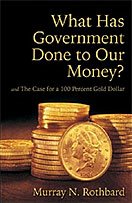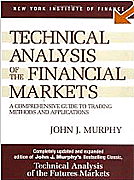The reasons why proposed IMF gold sales won’t happen
by Neal R. Ryan
'02-FEB-07 08:00'
NEW ORLEANS (Mineweb.com) --There are numerous reasons why the IMF panel of distinguished current and former central bankers’ recommendation for the sale of 400 tonnes of gold to help plug operating IMF budget deficits won’t happen.
Even if the IMF gold sale does occur, it will give the market yet another bullish signal on prices.
There are a number of reasons this won't happen, but should it still come to pass, it will give the market yet another bullish signal on prices.
First, the U.S. Congress would have to approve the move by the IMF because the United States has ultimate veto power over IMF decisions. The IMF needs an 85% consensus on a move like selling gold reserves.
Since the United States holds 17% of the voting power at the IMF, if Congress isn't on board, it's a non-starter. Currently, Congress can't seem to agree on anything, and might be as partisan a group of lawmakers that has existed in the United States in the past 150 years. Therefore, don't expect anything to happen anytime soon from this group.
Also keep in mind that every time a budget gap needs to be filled, education programs need cash, health care initiatives need funding, heavily indebted countries need relief, and the IMF gold sale idea is trotted out to the public.
The UK's Gordon Browne has been the main instigator of mobilizing IMF gold from vaults over the past few years to fund numerous programs or reduce debt for countries. Few would argue that his pulse on the gold market has been as consistently wrong as any other central banker.
The IMF's gold reserves should be viewed as an ultimate insurance policy on global fiscal crisis, not a piggy bank to be broken open repeatedly to help bridge funding gaps.
What happens if the IMF does start using gold reserves to pay for ordinary budget deficits and we see a global currency crisis repeated in Asia? What if a Latin American economy tanks, or there is another Russian currency crisis that requires immediate funding, potentially from gold sales?
There was no mention Wednesday of cutting IMF spending or reviewing budget expenses. Surely a government agency, such as the IMF, can find some costs that can be reduced and expenses that can be cut?
The gold sale recommendation is the lazy way to solve the problem of operational budget gaps and fixing spending issues. Once the gold is gone and the IMF continues to run operational deficits, what's next? From where does the crisis funding come if it's been spent to solve operational issues?
The last time the IMF sold gold reserves was 1976-1980 during the all time gold price high in 1980. Had the IMF held onto some of the 50 million ounces it disgorged during the first few years of this sales program, they would have realized prices at much higher multiples to what they received.
Similarly, the Bank of England sold 400 tonnes from 1999-2001 and the Bank of Australia sold significant gold reserves in 2000-2001. In hindsight, this has been shown to be the signal of a market bottom of prices.
These points illustrate that maximizing return on assets has not been the primary benefit of selling gold reserves in recent history. The market participants that purchased during these large sales have been the end beneficiaries, experiencing enormous price increases in short order after the sales were complete.
More than likely, any IMF sale will not actually hit the market, but will be sold directly to a large central bank looking for significant reserve diversification while also being able to bypass regular market trading fees.
Speculation has been rampant on the potential of the Chinese government to begin diversifying their massive dollar reserve base into gold. If the Chinese decided to take just a handful of their $1 trillion and buy the IMF gold outright--sales are expected to fetch roughly $6.6 billion at current prices--they could do so without batting an eyelash. Also, the act of diversification into gold can be a prudent one for the Chinese or other interested governments.
Any central bank making direct purchases from the IMF would be able to get 400 tonnes of gold without having to pay a cent in commissions to brokers or bullion banks.
The IMF Crocker Report mentioned that if the sales were to take place, they would be spread out over a considerable period of time, and would stay confined to the sales quotas of the Central Bank Gold Agreement (CBGA). Meanwhile, CBGA banks are heading towards a second straight year of missing sales quotas (and missing them significantly) after having completely filled sales quotas for seven straight years.
The market has continued to show outstanding resiliency in the face of a regular selling program. Should the IMF sales dovetail into CBGA activity, there is no reason to believe the market won't digest the additional tonnes and keep marching forward.
Finally, don't expect to see the IMF selling gold anytime soon. If sales end up becoming a reality, they will be done in such a way as to potentially never even hit the open market, not auction style like the Bank of England's gold sales.
Even an outright sale of 400 tonnes into today's gold market would cause some weeks of indigestion for some traders. But the market participants would jump at the opportunity to remove significant gold holdings from weak hands and distribute that to the strong hands of individual investors. History has shown that buying during periods of announced bank sales has proven quite beneficial for investors in the long term.
(Neal R. Ryan is Vice President and Director of Economic Research for Blanchard & Company, a New Orleans precious metals retailer)
Even if the IMF gold sale does occur, it will give the market yet another bullish signal on prices.
There are a number of reasons this won't happen, but should it still come to pass, it will give the market yet another bullish signal on prices.
First, the U.S. Congress would have to approve the move by the IMF because the United States has ultimate veto power over IMF decisions. The IMF needs an 85% consensus on a move like selling gold reserves.
Since the United States holds 17% of the voting power at the IMF, if Congress isn't on board, it's a non-starter. Currently, Congress can't seem to agree on anything, and might be as partisan a group of lawmakers that has existed in the United States in the past 150 years. Therefore, don't expect anything to happen anytime soon from this group.
Also keep in mind that every time a budget gap needs to be filled, education programs need cash, health care initiatives need funding, heavily indebted countries need relief, and the IMF gold sale idea is trotted out to the public.
The UK's Gordon Browne has been the main instigator of mobilizing IMF gold from vaults over the past few years to fund numerous programs or reduce debt for countries. Few would argue that his pulse on the gold market has been as consistently wrong as any other central banker.
The IMF's gold reserves should be viewed as an ultimate insurance policy on global fiscal crisis, not a piggy bank to be broken open repeatedly to help bridge funding gaps.
What happens if the IMF does start using gold reserves to pay for ordinary budget deficits and we see a global currency crisis repeated in Asia? What if a Latin American economy tanks, or there is another Russian currency crisis that requires immediate funding, potentially from gold sales?
There was no mention Wednesday of cutting IMF spending or reviewing budget expenses. Surely a government agency, such as the IMF, can find some costs that can be reduced and expenses that can be cut?
The gold sale recommendation is the lazy way to solve the problem of operational budget gaps and fixing spending issues. Once the gold is gone and the IMF continues to run operational deficits, what's next? From where does the crisis funding come if it's been spent to solve operational issues?
The last time the IMF sold gold reserves was 1976-1980 during the all time gold price high in 1980. Had the IMF held onto some of the 50 million ounces it disgorged during the first few years of this sales program, they would have realized prices at much higher multiples to what they received.
Similarly, the Bank of England sold 400 tonnes from 1999-2001 and the Bank of Australia sold significant gold reserves in 2000-2001. In hindsight, this has been shown to be the signal of a market bottom of prices.
These points illustrate that maximizing return on assets has not been the primary benefit of selling gold reserves in recent history. The market participants that purchased during these large sales have been the end beneficiaries, experiencing enormous price increases in short order after the sales were complete.
More than likely, any IMF sale will not actually hit the market, but will be sold directly to a large central bank looking for significant reserve diversification while also being able to bypass regular market trading fees.
Speculation has been rampant on the potential of the Chinese government to begin diversifying their massive dollar reserve base into gold. If the Chinese decided to take just a handful of their $1 trillion and buy the IMF gold outright--sales are expected to fetch roughly $6.6 billion at current prices--they could do so without batting an eyelash. Also, the act of diversification into gold can be a prudent one for the Chinese or other interested governments.
Any central bank making direct purchases from the IMF would be able to get 400 tonnes of gold without having to pay a cent in commissions to brokers or bullion banks.
The IMF Crocker Report mentioned that if the sales were to take place, they would be spread out over a considerable period of time, and would stay confined to the sales quotas of the Central Bank Gold Agreement (CBGA). Meanwhile, CBGA banks are heading towards a second straight year of missing sales quotas (and missing them significantly) after having completely filled sales quotas for seven straight years.
The market has continued to show outstanding resiliency in the face of a regular selling program. Should the IMF sales dovetail into CBGA activity, there is no reason to believe the market won't digest the additional tonnes and keep marching forward.
Finally, don't expect to see the IMF selling gold anytime soon. If sales end up becoming a reality, they will be done in such a way as to potentially never even hit the open market, not auction style like the Bank of England's gold sales.
Even an outright sale of 400 tonnes into today's gold market would cause some weeks of indigestion for some traders. But the market participants would jump at the opportunity to remove significant gold holdings from weak hands and distribute that to the strong hands of individual investors. History has shown that buying during periods of announced bank sales has proven quite beneficial for investors in the long term.
(Neal R. Ryan is Vice President and Director of Economic Research for Blanchard & Company, a New Orleans precious metals retailer)
Labels: gold















![[Most Recent Quotes from www.kitco.com] [Most Recent Quotes from www.kitco.com]](http://www.kitco.com/images/live/t24_au_en_usoz_6.gif)
![[Most Recent Quotes from www.kitco.com] [Most Recent Quotes from www.kitco.com]](http://www.kitco.com/images/live/au_go_0030_ny.gif)
![[Most Recent Quotes from www.kitco.com] [Most Recent Quotes from www.kitco.com]](http://www.kitco.com/images/live/au_go_0365_ny.gif)
![[Most Recent Quotes from www.kitco.com] [Most Recent Quotes from www.kitco.com]](http://kitconet.com/charts/metals/silver/t24_ag_en_usoz_4.gif)

















0 ΣΧΟΛΙΑ (COMMENTS):
Post a Comment
<< Home